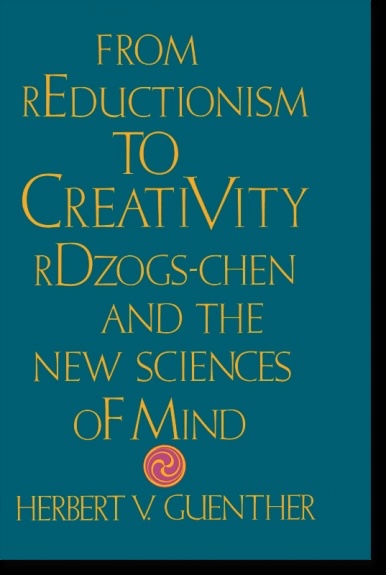- Forewordix
- Acknowledgmentsxv
- Introduction1
- 1 ABHIDHARMA : ITS SCOPE AND MEANING9
- The Meaning of the Term Abhidharma9
- The Meaning of the Term Buddha13
- 2 THE OPERATIONAL SYSTEM "MIND"15
- The Importance of a Healthy Attitude15
- A Structural Model of "Mind"23
- "Mind" as a Self-Structuring Process34
- 3 THE CONTEXTUALIZED SYSTEM "MIND"41
- Sociocultural Operators41
- 4 POLLUTANTS AND QUASI POLLUTANTS52
- Pollutants52
- The Quasi Pollutants58
- Summary61
- 5 CONCENTRATION, CONTEMPLATION, MEDITATION:
PRELIMINARIES ON THE WAY OF GROWING UP62- Objectivistic-Reductionistic Concentration66
- Mentalistic-Creative Contemplation81
- Holistic Imparting of Meaning89
- 6 THE WAY: THE EARLIER VIEW I95
- Introductory Remarks95
- The Theravāda Conception of the Way97
- 7 THE WAY: THE EARLIER VIEW Il106
- The Śrāvaka and Pratyekabuddha Ways106
- The Śrāvaka Conception of the Way106
- The Pratyekabuddha Conception of the Way122
- 8 THE WAY: THE LATER VIEW I126
- The Bodhisattva Way I: Prelude126
- The Meaning of the Terms Bodhisattva and Bodhicitta126
- rigs/khams128
- de-bzhin/bde-bar gshegs-pa'i snying-po132
- The Activation of Bodhicitta136
- Ethics and Sociocultural Levels145
- 9 THE WAY: THE LATER VIEW II151
- The Bodhisattva Way II: The Exact Itinerary151
- The Build-up Phase151
- The Probability of a Breakthrough161
- The Way of Seeing165
- The Way of Cultivating What Has Been Seen172
- The Way of No More Learning174
- 10 RDZOGS-CHEN: SUPERCOMPLETENESS I184
- Introductory Remarks184
- The rDzogs-chen Program188
- 11 RDZOGS-CHEN: SUPERCOMPLETENESS II195
- The Homologous Evolution of Man and God/Teacher195
- The Evolution of the God/Teacher Idea195
- The Evolution of Man as the Holomovement's Errancy Mode199
- 12 RDZOGS-CHEN: SUPERCOMPLETENESS III206
- Ontological Difference and Coordinated Hierarchy206
- The Ontological Difference206
- Coordinated Hierarchy215
- 13 RDZOGS-CHEN: SUPERCOMPLETENESS IV223
- The Role of Fluctuations in an Individual's Psychic Evolution223
- The Homology of Mentation Pollutants and Originary-Awareness Modes223
- The Dynamics of Self-Organization: Obscuration and Clearing235
- Epilogue245
- Notes249
- References284
- Indexes291
- A. Technical Terms291
- B. Subjects300
Writing in the language of the new sciences, Herbert Guenther traces the evolution of Buddhist views on cognition and points to their relevance in the contemporary world. The history of Buddhist thought is a unique example of the interplay between reductionism and creativity, between conservatism and innovation, and it is the author's purpose to examine the interaction between these complementary movements. Of decisive importance in this context is the idea of "mind," which Buddhism recognized early on as a process rather than a thing. This recognition marked the transition from structure-oriented thinking to a vigorous process-oriented thinking, which climaxed in the holistic movement known as rDzogs-chen. Based on original texts in the Pali, Tibetan, and Sanskrit languages, the book develops the Buddhist ideas out of the context in which they originated. (Source: Shambhala Publications)
| Citation | Guenther, Herbert V. From Reductionism to Creativity: rDzogs-chen and the New Sciences of Mind. Boston: Shambhala Publications, 1989. |
|---|---|


